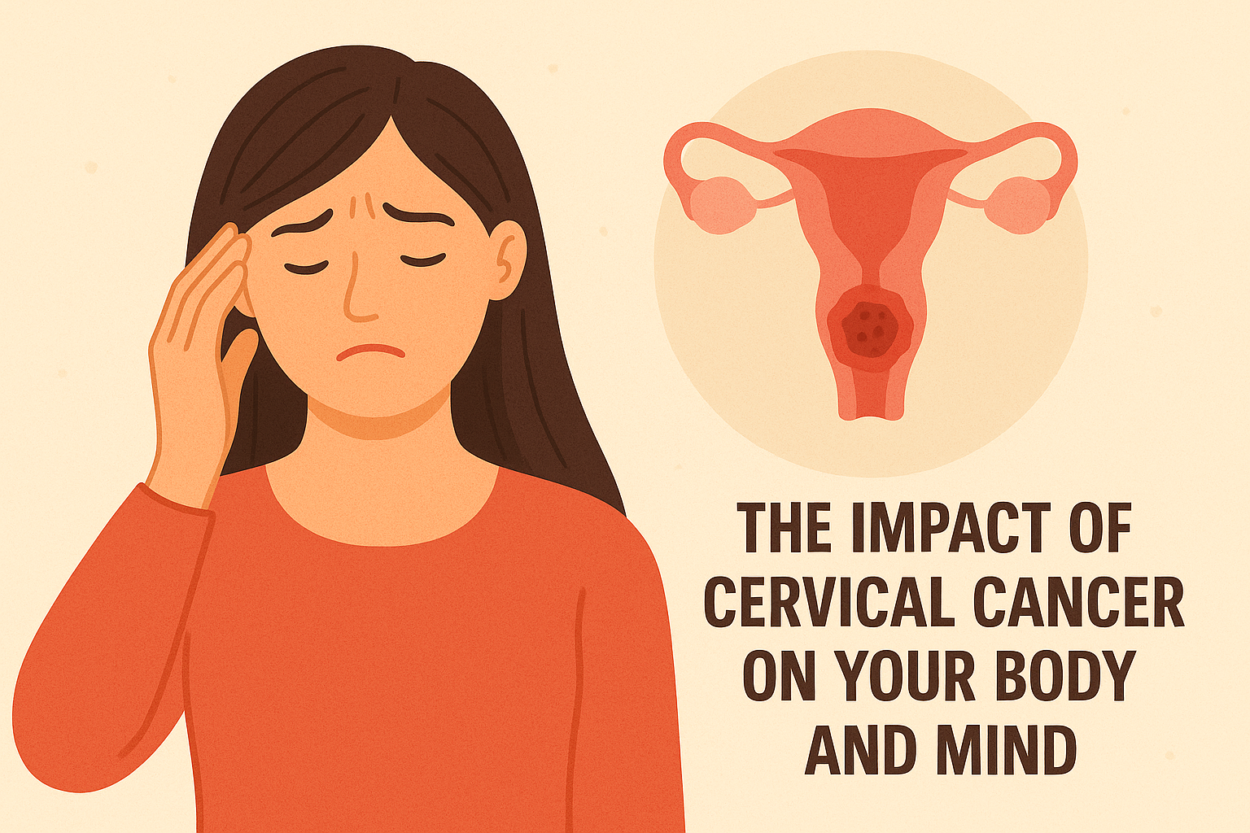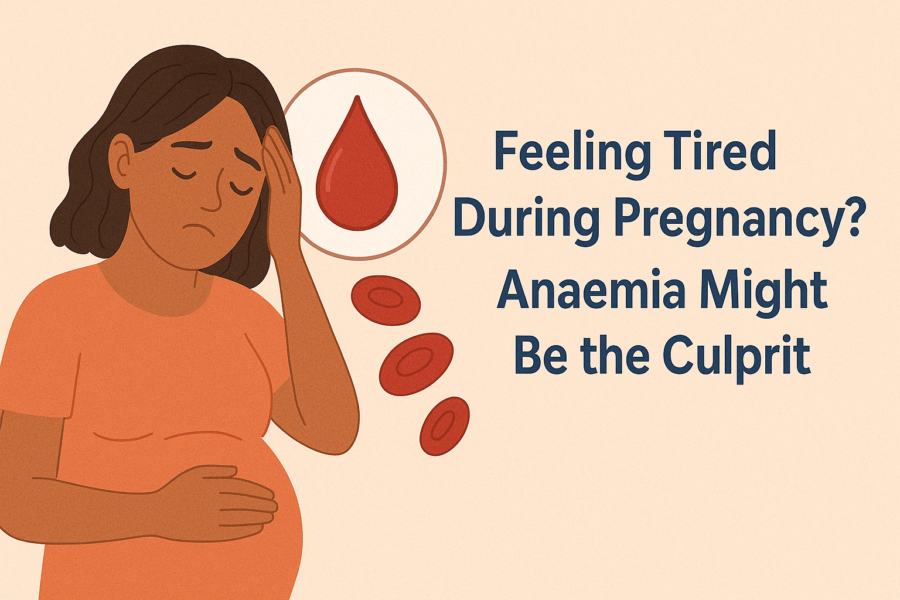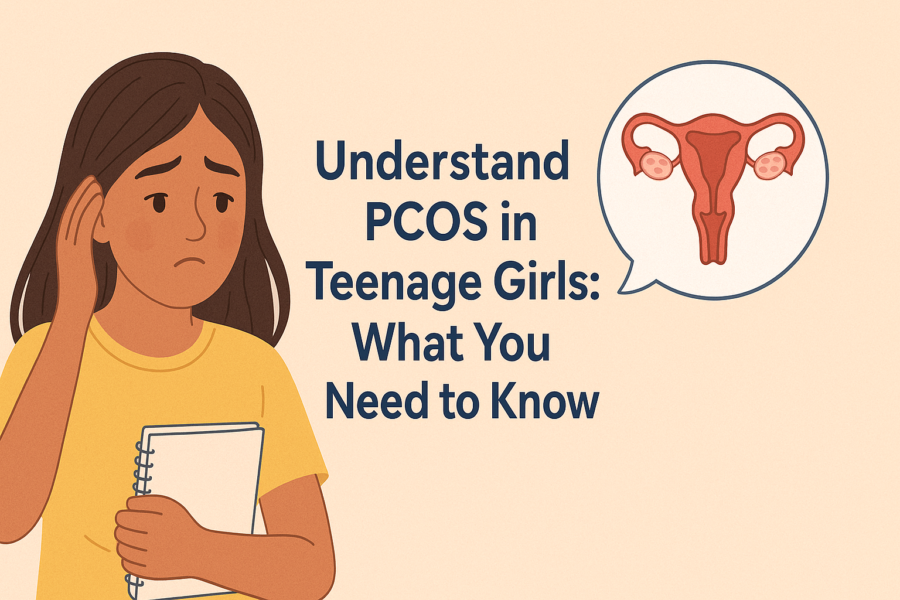Cervical cancer is a significant health concern that affects thousands of women worldwide
each year. While it is preventable through screening and vaccination, the diagnosis can
have profound effects on both the body and mind of those affected. Understanding these
impacts is crucial for patients, caregivers, and healthcare providers. This article explores
the multifaceted effects of cervical cancer on physical health, sexual function, and mental
well-being.
Physical Impacts of Cervical Cancer
Cervical cancer often presents with few symptoms in its early stages, making regular
screenings essential for early detection. However, as the disease progresses, women may
experience various physical symptoms, including:
Vaginal Bleeding: Unusual bleeding between periods or after menopause is common.
This can lead to significant physical discomfort and anxiety.
Pelvic Pain: Persistent pain in the pelvic region can occur as the cancer spreads to nearby
tissues.
Urinary Issues: Many women report difficulties with urination, including pain and
increased frequency, as the cancer affects the bladder and surrounding structures
Fatigue and Weight Loss: The body’s fight against cancer can lead to extreme fatigue and
unintentional weight loss, further impacting overall health and vitality.
Cervical cancer treatment often involves surgery, chemotherapy, and radiation therapy.
Each of these treatments can lead to various side effects:
Surgery: Procedures such as a hysterectomy may result in physical changes, including
altered body image and hormonal changes, which can affect sexual function and
emotional health.
Chemotherapy: This treatment can cause nausea, hair loss, and fatigue, significantly
impacting a woman’s quality of life. Additionally, chemotherapy can lead to changes in
libido and vaginal dryness, complicating sexual intimacy.
Radiation Therapy: Radiation can cause irritation and scarring of the vaginal tissues,
leading to pain during intercourse and further contributing to sexual dysfunction.
Sexual Health and Intimacy
Cervical cancer profoundly affects sexual health and intimacy. Many women report a
decrease in libido and changes in sexual function due to both the physical effects of the
cancer and the psychological impacts of the diagnosis and treatment.
Changes in Sexual Function
Research indicates that nearly half of cervical cancer survivors experience challenges with
sexual function. Common issues include:
- Loss of Libido: Physical symptoms, treatment side effects, and psychological stress can
lead to a diminished interest in sexual activity.
-Pain During Intercourse: Vaginal dryness and changes in vaginal tissue can make sexual
intercourse painful, leading to avoidance of sexual activity altogether. - Altered Body Image: Changes in physical appearance and function can affect self-esteem
and intimacy, making sexual relationships more complex and challenging.
Emotional and Relational Effects
The impact of cervical cancer on sexual health extends beyond physical symptoms.
Emotional and relational dynamics can also change significantly: - Communication Challenges: Couples may struggle to communicate about the changes in
sexual health, leading to misunderstandings and emotional distance. - Fear and Anxiety: Concerns about cancer recurrence, body image, and sexual
performance can create anxiety for both partners, further complicating intimacy. - Support Needs: Women may require additional emotional support from partners, family,
or counseling services to navigate these changes effectively.
Psychological Impact
The diagnosis of cervical cancer can lead to various psychological effects, including
anxiety, depression, and changes in self-identity.
Anxiety and Depression
Many women experience heightened anxiety and depression following a cervical cancer
diagnosis. The fear of cancer recurrence, the impact of treatment on daily life, and
concerns about fertility and sexual function can all contribute to mental health challenges.
Coping Mechanisms: Women may develop different coping strategies, ranging from
seeking support from friends and family to engaging in therapy or support groups.
Mental Health Support: Access to psychological support is crucial for helping women
manage the emotional toll of their diagnosis and treatment. Mental health professionals
can provide strategies to cope with anxiety and depression, enhancing overall well-being.
Changes in Self-Identity
A diagnosis of cervical cancer can significantly alter a woman’s self-identity. The transition
from a healthy individual to a cancer patient can lead to feelings of loss, grief, and
uncertainty about the future.
Reevaluation of Life Goals: Many women find themselves reevaluating their life priorities
and goals after a cancer diagnosis, which can lead to positive changes but also feelings of
confusion and fear.
Empowerment Through Advocacy: Some women channel their experiences into
advocacy, raising awareness about cervical cancer and the importance of screening and
vaccination, which can foster a sense of purpose and empowerment.
Cervical cancer has a profound impact on both the body and mind of those affected. The
physical symptoms and treatment side effects can lead to significant challenges in sexual
health and overall quality of life. Additionally, the psychological effects of a cancer
diagnosis can alter self-identity and emotional well-being.
It is essential for healthcare providers to address these multifaceted impacts through
comprehensive care that includes physical treatment, emotional support, and open
communication about sexual health. By fostering an environment of understanding and
support, women can navigate the complexities of cervical cancer more effectively,
ultimately improving their quality of life and mental health. Regular screenings and
vaccinations remain critical in preventing cervical cancer and mitigating its impacts,
underscoring the importance of awareness and proactive health management.







Hi there to every one, since I am really eager of reading this blog’s post to be updated on a regular basis. It includes fastidious data.
Thanks for your publication. One other thing is always that individual states have their particular laws of which affect people, which makes it very, very hard for the the legislature to come up with a brand new set of rules concerning home foreclosure on homeowners. The problem is that each state provides own regulations which may interact in a negative manner in relation to foreclosure policies.
Hi my friend! I want to say that this post is amazing, nice written and include almost all important infos. I’d like to see more posts like this.